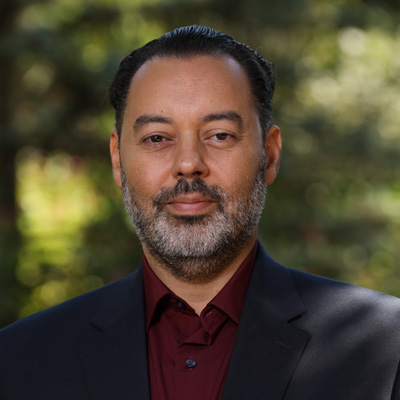Fadhel Kaboub, associate professor of economics, advises his students that knowledge should not be confined to the classroom but shared with the world.
It’s a philosophy that has led him to the Horn of Africa.
Kaboub has been granted a two-year leave from Denison and has relocated to Ethiopia to serve a key role in the Organisation of Educational Cooperation (OEC), which is headquartered in Addis Ababa.
The OEC was founded two years ago to improve the lives of citizens in Latin American, Caribbean, African, Asian, Middle Eastern and Pacific Island countries.
The OEC charter states that its purpose is to “contribute to the equitable, just, and prosperous social transformation of societies by promoting balanced and inclusive education, in order to attain the fundamental rights to liberty, justice, dignity, sustainability, social cohesion, and material and immaterial security for the peoples of the world.”
A decidedly big goal, but one Kaboub has been working toward for decades, both through his teaching and his research.
“I am honored and humbled by the Secretary-General’s appointment to join the Organisation of Educational Cooperation as Under-Secretary-General for Financing for Development,” Kaboub said, “and I am grateful for the opportunity to serve in an organisation that works with member-states towards reducing the Global South’s external debt, securing sustainable financing mechanisms, and creating the fiscal policy space to promote the endogenous economic development needed to achieve the goals of the Universal Declaration of Balanced and Inclusive Education and to meet the aspirations of young people from across the Global South.”
Denison Provost Kim Coplin ’85 said Kaboub’s new post meshes perfectly with his philosophy that knowledge should not be siloed at educational institutions but shared far more widely, especially with those who would benefit most from it.
In class, Coplin said, “Fadhel was always trying to connect what he was teaching to the real world.”
Denison students find Kaboub to be passionate and intentional in his teaching, she said. He’s often encouraged them to write letters to the editor to the esteemed Financial Times of London, as a way to remind them that there is a global audience for the ideas they explored in class.
Kaboub began teaching at Denison in 2008. Much of his research builds upon Modern Money Theory and focuses on monetary sovereignty, job creation programs, youth unemployment, and the political economy of the Middle East. He has held several research affiliations, including the Levy Economics Institute of Bard College, the John F. Kennedy School of Government at Harvard University, the Economic Research Forum (Cairo), Power Shift Africa (Nairobi), and the Center for Strategic Studies on the Maghreb (Tunis).

